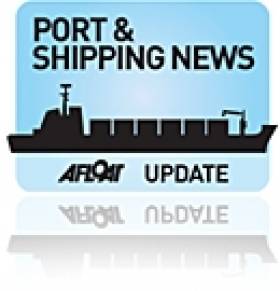Displaying items by tag: Eucon Shipping and Transport
Export Industry Awards to Deep and Short Sea Shipping
Eucon Shipping and Transport Ltd won the Short Sea Shipping Company of the Year Award 2011, sponsored by the Irish Maritime Development Office (IMDO), which recognises the strategically important role of short sea shipping to our economy. Eucon offers Irish exporters access to worldwide markets via its regular feeder services to Rotterdam, Antwerp and Southampton operating from the ports of Dublin, Cork and Belfast. The other nominees were: CLdN RoRo S.A. and Grimaldi Lines.
In the category for the Logistics Company of the Year Award 2011, sponsored by Dublin Port Company, the award went to Caffrey International. The Co. Meath based company is a specialist provider of road transport and logistics services between Ireland, the UK and continental Europe.
The award recognises the importance of logistics and supply chain management firms to the exporting effort of companies trading internationally from Ireland. The other nominees were: DHL Global Forwarding (Ireland) Ltd., Dublin; Eucon Shipping and Transport Ltd. and Geodis Ireland Limited, Dublin.
ABC Nutrition of Shannon was presented with the overall award of the Exporter of the Year Award 2011 after winning in the Emerging Markets Exporter Award, one of twelve categories which were presented at the ceremony.




























































